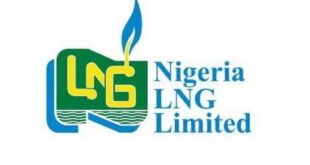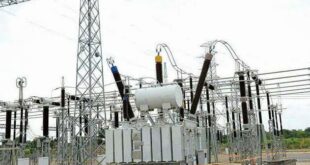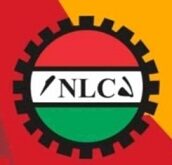By Amaechi Okonkwo
The Nigerian Maritime Administration and Safety Agency NIMASA, has said that it is galvanising littoral states and other partners to embark on pursuit of the nation’s development of its Blue Economy.
The move according to Ubong Essien, special assistant to Dr Bashir Jamoh, director general, NIMASA is expected to create employments and markets for the products.
Speaking to journalists in Port Harcourt, Essien explained that the thinking of the agency on the partnership with the littoral states is that they (states) become the engine of growth for the Blue Economy with each state capitalising on their comparative advantage.
Essien stated; “An example of the littoral states’ programme is the willingness of some states to volunteer participation in some aspects of the Blue Economy.
“For instance, Bayelsa State has offered to do recycling of wrecks. It is going to be a collaboration project with NIMASA, Nigerian Railways Corporation (NRC), Bayelsa, with a South African tech company. This may produce spare parts from the recycled wrecks for the NRC.
“Some states prefer to participate in training and manpower development schemes, some will do fishing, etc. Ours is to galvanise these states and partners to embark in the Blue Economy. These efforts are expected to create employments and market for the products. NIMASA is out to boost that aspect of the economy. We want to make fishing much more economical. Tourism is a sector waiting for action. Our aim is to galvanise the littoral states to participate in areas they have comparative advantage.
“There is the flag-off of removal of wrecks that have been there in the waterways for a long time. They constitute potential danger to vessels as far as navigation is concerned. The minister of Transportation flagged this scheme off, and it is now ongoing. This way, NIMASA can fulfill one of its critical mandates in safety”, he declared.
Essien noted that besides drastically reducing piracy and other criminal attacks on vessels in the country waterways NIMASA would soon unveil a national blueprint on Blue Economy as it seeks increased participation and benefits to the nation from its coastal endowments.
The agency has since launched and is implementing the Deep Blue Project, the major pivot of the efforts planned to reduce to the barest minimum incidences of piracy and other forms of insecurity that had threatened navigation in the county’s maritime domain.
He told journalists that the Deep Blue Project launched few months ago was already yielding huge benefits to the nation, adding that the achievements which have hugely increased safety in the country maritime domain and other developments embarked upon by the DG were responsible for the Zik Prize for Public Service recently won by Dr. Jamoh.
Under shipping development and capacity building he announced that the training of 200 cadets flagged off recently was on, adding that “Our shipping development and capacity building scheme involves preparing cadets for training to become seafarers. Two weeks ago, 200 of these cadets were flagged off to embark on training in two foreign countries: India and Greece. That project is now a reality, it has happened. This is an important point in the DG’s scale of performance”.
He however expressed disappointment that despite acknowledgement by the International Maritime Bureau, IMB that piracy and criminality have been drastically reduced on the country’s maritime domain the bureau was yet to lift the War Risk Insurance on vessels coming to the country.
He said,”It is sad that the War Risk Insurance slammed on Nigeria (vessels coming to Nigeria are charged higher fees for sake of insecurity). It is also sad that this has persisted despite huge improvements in security in Nigeria’s waters. We are all paying the price for it. When goods enter the country, the higher cost in shipping and insurance will drive the cost up. The International Maritime Bureau (IMB) has admitted that the attacks have drastically dropped as never before in decades. What baffles the NIMASA management is why that though this reduction in attacks has been admitted by the IMB but the WRI is still in place. It’s a punitive insurance measure. The DG has gone to three international meetings where he has been making demand and appeal for removal of War Risk Insurance”.
He explained some of the achievements of NIMASA on security to include the jailing of 20 culprits for piracy. “Under Maritime Security, you are aware of the criminal convictions and sentencing of offenders. The 10 pirates, each jailed 10 years with a fine of N200,000 last week by a Federal High Court sitting in Ikoyi for hijacking a merchant vessel, FV Hailufeng II, on May 15, 2020, bring to 20 the number of pirates that have so far been convicted under the Suppression of Piracy and Other Maritime Offences (SPOMO) Act of 2019.
Another element is the creation of the Shared Awareness for the De-Confusion (SHADE) for the Gulf of Guinea. It is a maritime collaboration of Navies and industries in the entire coastline in the Gulf of Guinea. As at last year (2020) when the president moved for the collaboration in the region, Nigeria did not have such collaboration that would bring everybody together to share information, intelligence and assets such that if anything develops close to country ‘A’, another country that has assets closest to it can move in. It was around April 2021 that the agreement was formally flagged off”.
 PH Mundial – Port Harcourt Online Newspaper News Across The Region
PH Mundial – Port Harcourt Online Newspaper News Across The Region





